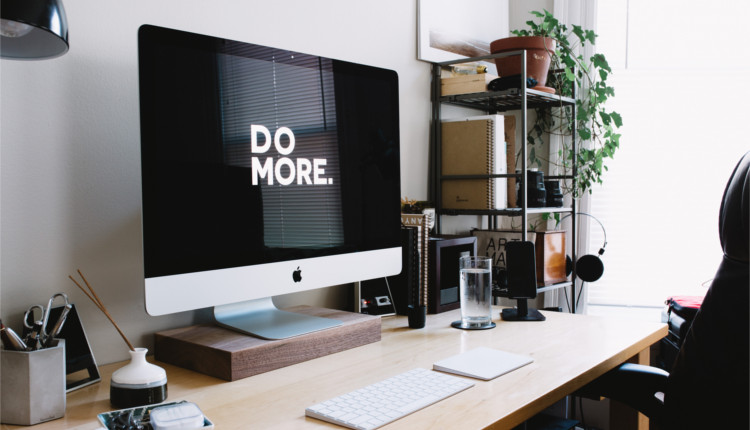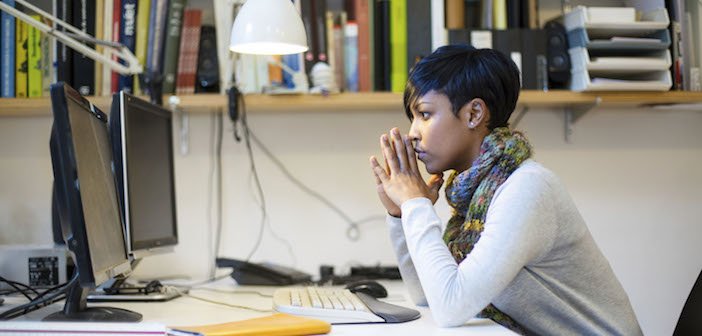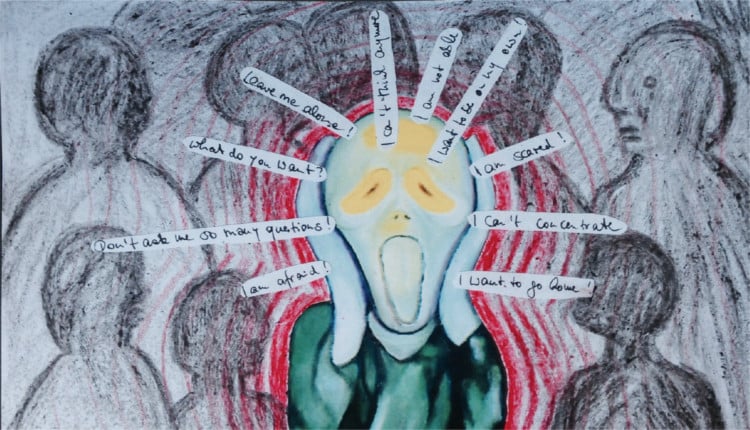Living Your Best Life | A Guide to Stop Procrastinating
The fact that we’re all prone to procrastination doesn’t mean it has to be a foregone conclusion. A little self-awareness, a dash of mindfulness and a bit of emotional self-inventorying can bring you clarity of purpose and a brain that’s simultaneously at peace with itself and energized about the future.
Living your best life and achieving a higher state of productivity is a personal journey, but it’s a deeply satisfying one. It requires you to forge your own path and take every piece of unsolicited advice with a pinch of salt — including the six suggestions you’re about to read.
Let Go of Perfectionism
If you’ve identified yourself as a chronic procrastinator, it’s time you understood why. Everybody’s mileage will vary, and everyone’s mind works a bit differently, but chances are good you procrastinate for the same reasons as anybody — because you expect too much of yourself.
Perfectionism is basically telling yourself nothing’s worth your time unless you can do it flawlessly, which is just far too much to expect of anyone. So many talented singers, actors and writers were turned down time and time again before they landed their career-launching gigs. Lots of fantastic politicians lost their first couple of elections. How much worse off would the world be now if, because they couldn’t stand the idea that they’re capable of failure, these people didn’t bother trying in the first place?
Measure Productivity Five Minutes at a Time (Not Five Years)
The awareness of time is both our greatest gift and curse. On one hand, human beings rely on time to bring a sense of urgency to our lives. On the other, we often unconsciously use time to punish ourselves and trip ourselves up. We think productivity is a zero-sum game and that if we don’t accomplish something this year, somebody else is going to beat us to it.
But it’s all a double-edged sword, isn’t it? Our lives might be short, but that means we have the freedom to measure it as granularly as we want to. You probably have long-term goals that could take a week or a month or several years to complete. You want to buy a house. You want to pay off your student loans. You want to finish writing your book — or finish reading somebody else’s magnum opus.

Whether you’re using the Pomodoro technique or just eyeballing it, you can just as easily measure human productivity in minutes as hours and years. So start by spending those five minutes per day in pursuit of a goal that means something to you. In fact, this is a great way to try out a bunch of things that might interest you and find out what actually “sticks” as a meaningful addition to your life. Five minutes spent pursuing a discipline or a hobby you take unexpected pleasure from will soon become ten minutes. And then an hour. And soon a lifetime.
Get Organized (To a Point)
Leo Tolstoy wrote War and Peace long before the personal computer or Evernote. In fact, it’s probably fair to say that most of the creative works we call timeless came about long before laptops, cell phones and apps.
Some folks say the most prolific human beings among us have the messiest desks. That’s probably not true in all cases, but it’s almost certainly true that many of us drive ourselves insane with getting organized instead of doing the real work of being productive. “There’s an app for that.” Sure there is. But does there need to be?

If you’re a photographer who spends more time organizing your photo library than actually taking photos, you might be digging yourself into a creative rut! Same goes for the writer who trolls the App Store looking for the perfect writing organization app. But we’re still reading and rereading human literature that was put down on rice paper. Lots of people turn their home and flower beds into veritable Gardens of Eden having never heard of Pinterest.
Keeping your ideas and inspiration relatively organized is essential. But getting hung up on the process or the equipment or the medium or the app might just be another excuse for procrastinating your best work.
Learn Where Anxiety Comes From
Many people in the world struggle with everyday anxiety without knowing where it comes from. Some of the self-reflection required to break through that mental block is probably best explored with the help of a therapist. But in other cases, mindfulness and meditation are some of the best tools you need to figure out where your anxiety comes from and stop it from holding you back.
A lot of anxiety comes from worrying about how others perceive us. No surprise there. Fighting off those feelings requires us to work for our own happiness and sense of fulfillment instead of getting hung up on “performing” for others. But in other cases, unresolved sources of anxiety might require a little more digging and triage. Medical professionals cite the following as common sources of anxiety:
- Stress from school or work
- Unspoken problems in relationships
- Financial duress
- Unresolved emotional traumas, including a loss in the family
- Side-effects of medications or the aftermath of surgery or illness
What’s holding you back? Pinpointing the sources of anxiety and treating can be difficult. And yet, it holds us back in tons of ways, including some that masquerade as serious illness. A study of patients with apparent symptoms of heart disease, including chronic chest pain, revealed that 43 percent of those patients had anxiety and panic-related symptoms — not heart-related ones.

Human anxiety can be so present in our daily life that we mistake it for physical illness or teach ourselves to ignore it entirely. Beating anxiety might mean seeking out actual medical assistance. But it can also mean just getting to know the workings of your mind a bit better and learning what it is about your relationships or daily living that’s contributing to your feelings of inadequacy, of feeling trapped or of feeling like life has passed you by.
Remember: Life Is Short, but So Beautiful
We’re not expected to like it, but we all need to make our peace with it one way or another — life is far shorter than we tend to realize in our daily moments. It doesn’t make what we do in life worthless. On the contrary, it makes everything we do very important. And yet, even though we all understand why having downtime is essential, living our best lives and doing great work also requires that we stop caring so much about the many things that are outside our control. It means slowing down a little bit.
You’ve heard before that you should make your peace with the things you cannot control and learn to rank by importance the things that you can. A person with a so-called “external locus of control” is a person who tends to blame the world for their perceived lack of direction in life. This kind of thinking can actually potentially take years off your life.
In many ways, remembering our impermanence can be freeing. It gives weight to what we do but also reminds us not to worry about things that don’t deserve worry. It helps us out when we lack perspective. It gives us permission not to trip ourselves up over trivialities. It forces us to explore our thoughts more fully, to spend time with what matters and jettison everything that doesn’t.
